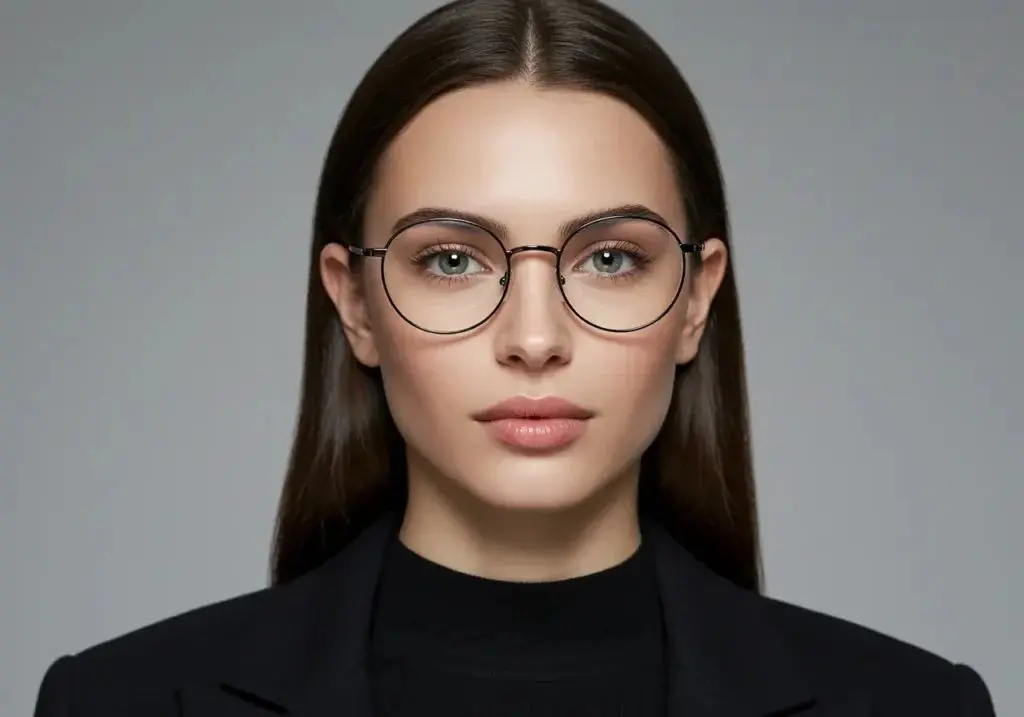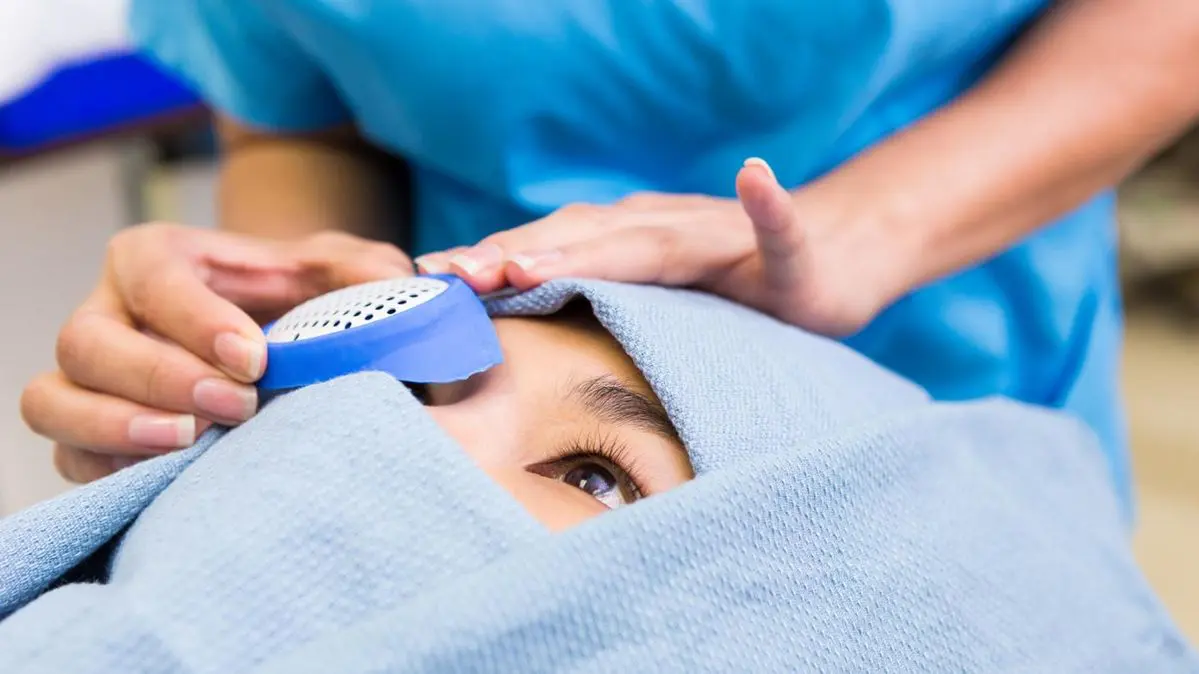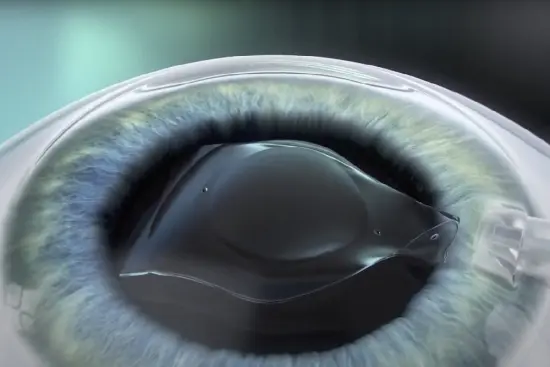Why do you need to wear glasses?

Refractive errors are often related to the shape of the eye or the age of the lens
Glasses not only help you see more clearly — they also act as an “assistant” that lets your eyes work more easily, reduces strain, and prevents complications from refractive errors.
Most cases that require wearing glasses are due to refractive errors, which include:
- Myopia (nearsightedness): distant objects appear blurry; squinting when driving or reading a board is common.
- Hyperopia (farsightedness): near vision and intermediate tasks appear blurry, causing eye fatigue during reading.
- Astigmatism: images appear distorted or blurred at all distances.
- Presbyopia: occurs after age 40 and causes difficulty seeing up close.
These refractive errors cause light not to focus correctly on the retina, leading to eye strain, headaches, and even reduced concentration. In such cases, wearing glasses is the most basic solution to help the eyes function properly again.
When do doctors recommend wearing glasses all day?
Not everyone with myopia, hyperopia, or astigmatism needs to wear glasses all the time. This depends on your prescription, the degree of refractive error, and your lifestyle.
A doctor may advise you to wear glasses all day in the following situations:
a. Moderate to high myopia
If your myopia is −2.0D or higher, the eyes will have difficulty focusing at distance. Frequently removing glasses can cause eye fatigue and may accelerate prescription changes.
→ Doctors will recommend wearing glasses regularly, especially when driving, studying, working, or being outdoors.
b. Astigmatism
People with astigmatism often experience warped, unclear vision at both near and far distances. Without glasses, the brain and eye muscles must constantly compensate, causing headaches and dizziness.
→ Wearing glasses continuously stabilizes images and significantly reduces eye strain.
c. One eye nearsighted and the other farsighted
Having one eye nearsighted and the other farsighted leads to uneven vision and reduces binocular coordination.
→ Wearing glasses all day helps both eyes work together, preventing lazy eye or double vision.
d. Children and students
In children who are still developing, not wearing glasses can allow refractive errors to progress quickly or lead to amblyopia (lazy eye).
→ For this group, doctors generally recommend wearing glasses all day unless instructed otherwise.
When do you only need to wear glasses for certain activities?

An ophthalmologist will help you understand whether you should wear glasses regularly or only for specific tasks.
If you have mild myopia (less than 1 diopter) or mild hyperopia, you may only need to wear glasses for:
- Prolonged computer work.
- Driving, watching movies, or looking at distant objects.
- Reading or performing close, detailed tasks.
However, if you frequently feel eye fatigue, glare, or headaches, you should have a follow-up exam — the doctor may adjust your prescription and recommend wearing glasses more often.
Benefits of wearing glasses correctly
1. Improve vision and safety:
Clearer vision helps you react faster when driving, studying, or working — especially at night or in low-light conditions.
2. Reduce eye strain and dry eyes:
Wearing the correct prescription prevents excessive eye accommodation, lowering the risk of headaches and dry eyes from overworked eye muscles.
3. Prevent wrinkles around the eyes:
Not having to squint repeatedly to see clearly reduces the chance of forming lines on the forehead and crow’s feet around the eyes.
Glasses can protect your eyes more than you think

It is important to remember that wearing glasses do not affect your overall eye health.
Today, lenses do more than correct vision — they also protect the eyes from UV rays and blue light from electronic devices.
- Blue-light filtering lenses help reduce eye strain when working with computers or phones.
- UV-blocking lenses protect the cornea and retina from sunlight, lowering the risk of macular degeneration and early cataract formation.
- Photochromic lenses (Transitions®) automatically adapt to light levels — convenient for people who frequently move between indoor and outdoor environments.
Office workers, students, and older adults should consider wearing blue-light filtering and UV-protective lenses throughout the day to protect their eyes from long-term damage.
Do glasses make your eyes weaker?
This is a common misconception. In fact, wearing glasses does not weaken the eyes, nor does it cause prescriptions to worsen faster. On the contrary, if you do not wear glasses when needed, your eyes must over-accommodate, causing fatigue and potentially accelerating myopic progression over time.
Except for certain special cases in young children with amblyopia, wearing the correct glasses helps improve vision and visual development.
How often should you replace your glasses?
Vision can change over time, especially in students, young adults, and people who spend a lot of time in front of screens.
- Have an eye exam every 6–12 months to check your prescription.
- If you notice eye strain, pain, blurred vision, or increased glare, get checked sooner — these may be signs your prescription is no longer appropriate.
Advice from ophthalmologists
Wearing glasses is personalized — there is no one-size-fits-all rule. The most important things are:
- Have regular eye exams so your doctor can assess your need to wear glasses.
- Follow wearing instructions according to your prescription, especially if your doctor advises wearing glasses all day.
- If your glasses cause discomfort, eye pain, or blurred vision — do not stop wearing them on your own; return for a follow-up exam.
Glasses not only help you see more clearly, but also help preserve long-term eye health.
The eyes are the “windows to the soul” — wear glasses when needed to keep those windows bright and healthy every day.

 vi
vi 12-Nov-2025
12-Nov-2025











 0916.741.763
0916.741.763 Appointment
Appointment